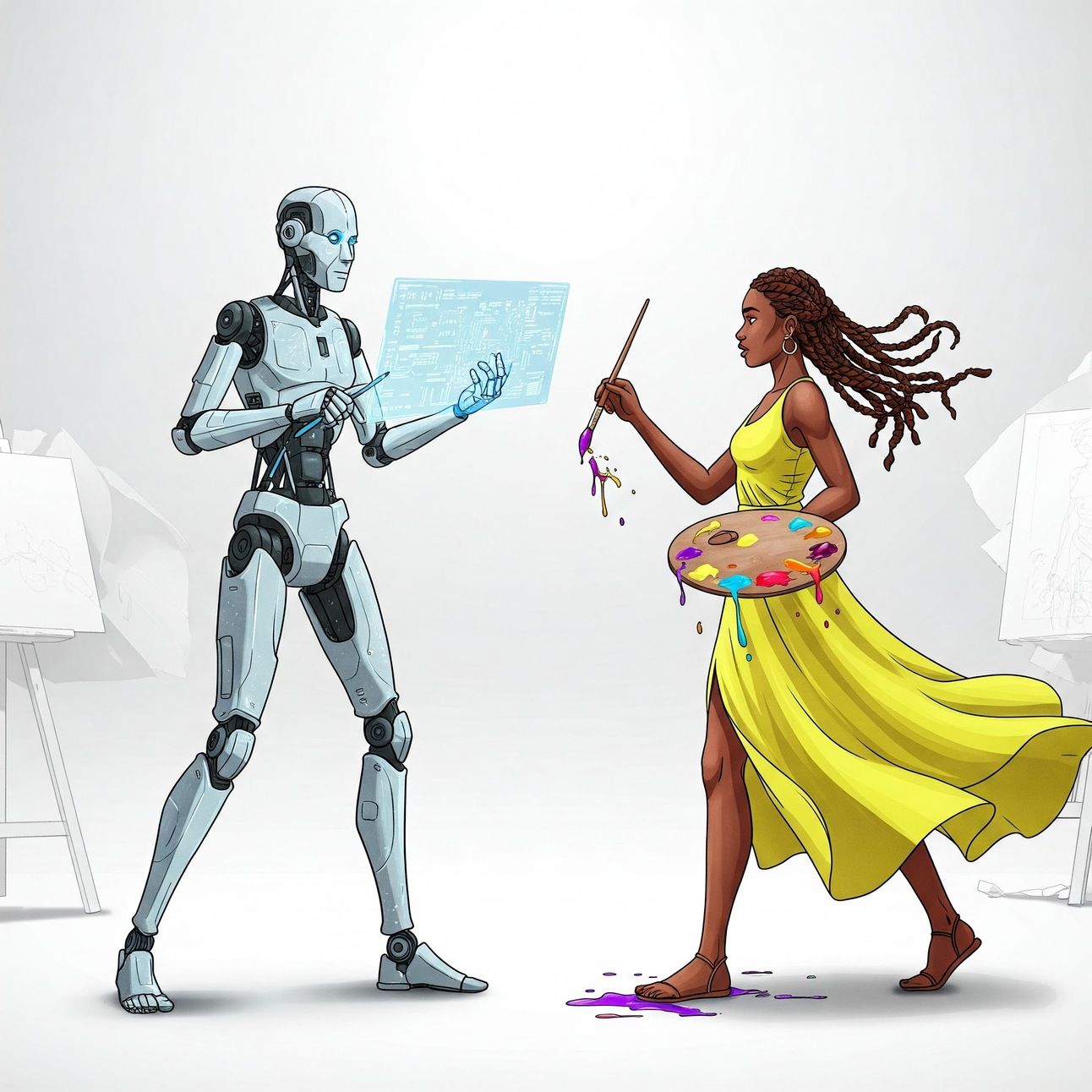- AI Game Lab
- Posts
- AI vs. Human Creativity: Can AI Generate Engaging Game Stories and Quests? – Are AI-generated narratives as compelling as those written by humans?
AI vs. Human Creativity: Can AI Generate Engaging Game Stories and Quests? – Are AI-generated narratives as compelling as those written by humans?

AI vs. Human Creativity: Can AI Generate Engaging Game Stories and Quests?
Game narratives have long been the emotional and imaginative core of interactive entertainment. With the rise of artificial intelligence, studios are exploring new ways to generate stories and quests using large language models and narrative engines. But can AI truly match the nuance, meaning, and emotional impact of a story crafted by a human writer? Or is it destined to serve as a creative assistant, not the author?
🧠 What AI Can (and Can’t) Do in Storytelling
AI models like ChatGPT and NovelAI can already generate rich lore, branching questlines, and dialogue trees on demand. They’re being used by developers to prototype side quests, write item descriptions, and even generate dialogue based on player input. But while AI can mimic the structure of a good story, it struggles with originality, subtext, and emotional pacing — key ingredients in truly memorable narratives.
🎮 Tools Empowering Narrative Designers
Instead of replacing human writers, many AI tools are built to support them. Tools like Inworld AI and Hidden Door allow developers to build dynamic NPCs that react to player choices in real time. These systems can generate dialogue variations, adjust tone based on character emotions, and simulate memory — adding depth without overwhelming writers with branching logic complexity.
📜 Procedural Quests, Personalized Stories
Games like Skyrim and Watch Dogs: Legion have already experimented with procedurally generated quests and characters. Now, AI allows studios to go further — creating tailored story arcs for individual players based on their actions, preferences, or personality types. This makes for more immersive, player-centric worlds — but risks losing the handcrafted feel that defines many beloved games.
⚖️ Creative Ethics and Ownership
One of the major discussions around AI-generated content is ownership. Who owns the story — the AI model’s developer, the game studio, or the player prompting it? Legal bodies like the U.S. Copyright Office have indicated that AI-generated stories may not qualify for copyright unless significantly modified by a human. This adds new layers to both storytelling rights and monetization models in the gaming industry.
AI can build worlds, spin tales, and script dialogue — but can it truly tell a story that moves us? The future of narrative in gaming may lie not in choosing between AI and human creativity, but in the blend of both. Still, one question lingers: If every player gets a unique story, will we lose the shared narratives that make games so unforgettable? © 2025 AI Gaming Insights

Reply